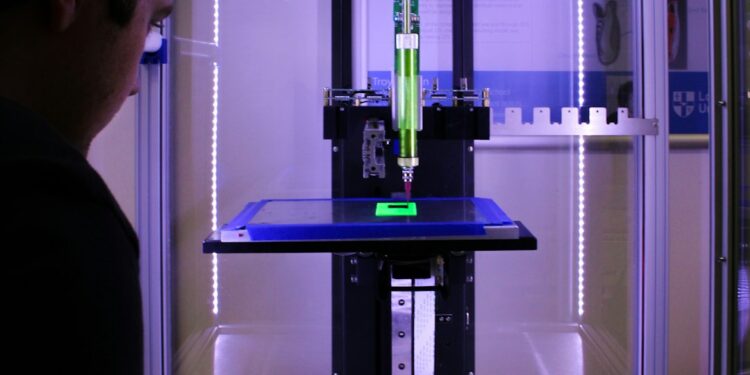In recent years, the manufacturing industry has undergone a massive transformation due to advancements in technology and the rise of digital manufacturing. With the increasing adoption of automation, artificial intelligence, and Internet of Things (IoT) devices, the future of work in this sector is set to change dramatically. In this blog post, we will explore how digital manufacturing is shaping the future of work and what this means for both employers and employees.
One of the key aspects of digital manufacturing is the use of automation to streamline production processes and increase efficiency. This means that many routine tasks that were previously carried out by human workers can now be automated, resulting in a workforce that is more focused on overseeing and managing these processes rather than carrying them out themselves. While this may lead to job displacement for some workers, it also creates new opportunities for upskilling and retraining in order to stay relevant in a rapidly changing industry.
Another major impact of digital manufacturing on the future of work is the increased reliance on data and analytics to drive decision-making. With the use of IoT devices and sensors embedded in machines and equipment, manufacturers are able to collect vast amounts of data on their operations in real-time. This data can be used to optimize production schedules, predict maintenance issues before they occur, and identify areas for improvement. As a result, there is a growing demand for workers with skills in data analysis, machine learning, and other related fields to help companies make sense of this data and use it to drive their businesses forward.
In addition to automation and data analytics, digital manufacturing is also leading to the development of new roles and job opportunities in areas such as cybersecurity, virtual reality, and remote monitoring. As manufacturers increasingly rely on interconnected systems and cloud-based technologies to run their operations, the need for workers who can ensure the security and resilience of these systems is becoming more important than ever. Similarly, the use of virtual reality and augmented reality in training and maintenance processes is creating new opportunities for workers who can develop and implement these technologies in a manufacturing setting.
Furthermore, remote monitoring and control of manufacturing processes is becoming more common, allowing workers to oversee operations from anywhere in the world. This has the potential to create a more flexible and decentralized workforce, with employees able to work remotely and collaborate with colleagues in different locations. However, this also raises questions about the future of traditional manufacturing jobs that require physical presence on the shop floor, and how these roles will evolve in an increasingly digital world.
While the future of work in the era of digital manufacturing is undoubtedly changing, there are also immense opportunities for growth and innovation in this sector. By embracing new technologies and investing in upskilling their workforce, manufacturers can stay competitive and thrive in an increasingly digital world. Employees, on the other hand, are encouraged to adapt to these changes by acquiring new skills and staying abreast of the latest trends in technology and manufacturing.
Overall, the future of work in the era of digital manufacturing is both exciting and challenging. As automation, data analytics, and new technologies continue to reshape the manufacturing industry, both employers and employees will need to adapt in order to stay ahead of the curve. By seizing the opportunities presented by digital manufacturing and embracing the changes it brings, companies and workers alike can help shape a future that is both innovative and sustainable. The key to success in this new era of work lies in embracing change, fostering a culture of learning and development, and maintaining a forward-thinking mindset. Only by doing so can we truly harness the potential of digital manufacturing and ensure a prosperous future for all involved.














